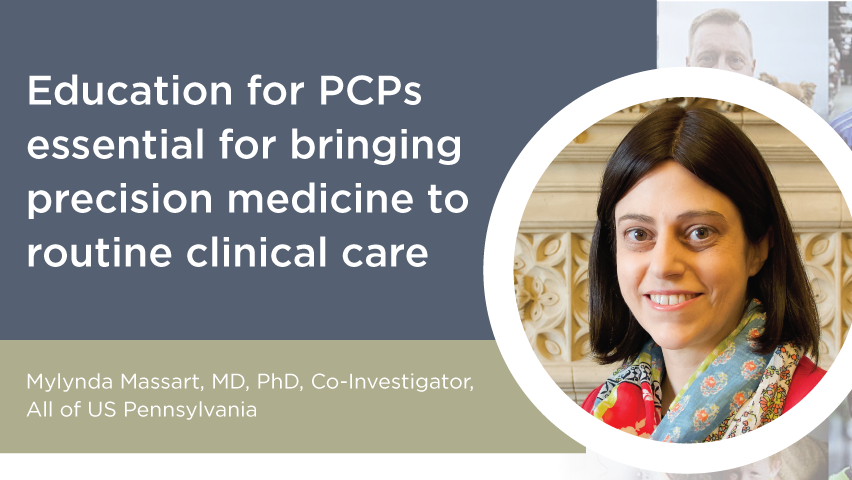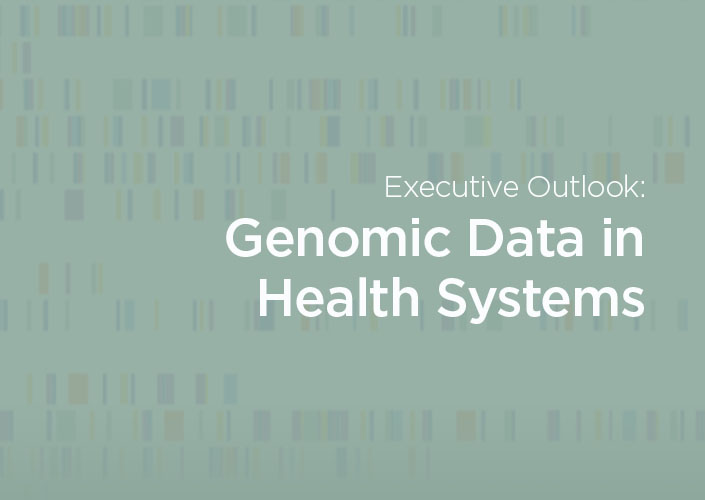Primary care physicians are facing more questions from patients who are curious about genetic testing and what their DNA says about their health.
Clinicians need genomics education to be prepared to respond to their patients.
Precision medicine is changing the standard of health care. Also known as “personalized-medicine” or “genomic medicine,” precision medicine is the practice of individualizing medical care for patients based on their genomic data, lifestyle, and environment. As precision medicine develops and becomes a reality in clinical settings, experts say patients, researchers, and clinicians are being forced to respond.

“The direct-to-consumer market has led the role in leading genomic awareness. Patients are bringing in questions to their doctors, using the internet, and creating an era of patient-driven medicine,” said Mylynda Massart, MD, PhD, co-investigator of All of Us Pennsylvania, a family medicine physician at UPMC and assistant professor at University of Pittsburgh.
Although health care professionals are beginning to use genomic data to implement personalized care, the practice faces numerous challenges, such as improving clinician knowledge and beliefs about genomic medicine, developing education materials for clinicians, and conducting educational meetings with clinicians.
Education for PCPs is vital
Primary care physician (PCP) genomic education is vital for the execution of precision medicine to prevent and treat disease because it provides clinicians the ability to use the data in a targeted and useful manner. Dr. Massart, who was an expert panelist on the Center for Connected Medicine’s “Rise of Genomics” webinar, is a faculty expert for the Test2Learn education program, which could serve as a model for PCP genomic education.
Test2Learn is an online education model driven by the University of Pittsburgh in the field of pharmacogenomics, the study of how genes affect a person’s response to drugs. This field combines the science of pharmaceutical drugs and genomic data to help health care professionals define safe and effective medications for specific patients. Dr. Massart expects a similar program designed specifically for primary care physician education to be available online within the next year.
“The premise of this program is for participants to test their own genetics and practice using their own results. This gives the doctor the opportunity to be the patient, which increases engagement in the program,” Dr. Massart said.
Three-phase program needed
Dr. Massart said a PCP education model to implement genomics should be carried out in three phases. The first phase would occur during medical school and provide an in-depth understanding of genomics role in each organ system. Secondly, during residency, training would transition from book learning to clinical and bedside training. Thirdly, mandatory continued education through the PCP’s career would round out the education model.
Driving forces such as lectures, online education and national research projects, including the All of Us initiative, which aims to collect genetic and medical information from 1 million volunteers in the U.S. for research purposes, also are helping to provide education on the implementation of precision medicine.
“This year specifically, the tide is turning. For a long time when people heard about genomics, they thought about the future,” Dr. Massart said. “People are starting to grasp that the future is now.”



